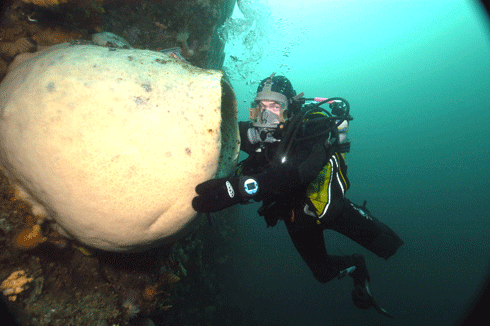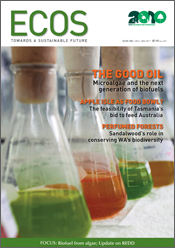
|
Published: 20 December 2010
Iceberg threat to Antarctic ecosystems
As climate change liberates more icebergs from melting ice sheets and glaciers, ice scouring – caused when icebergs grate against the ocean floor – is causing increasing damage to Antarctic underwater ecosystems.

|
|
Large diverse communities, containing species such as this Antarctic barrel sponge, develop under low to intermediate disturbance rates. Credit: Daniel Smale
|
University of Western Australia Oceans Institute researcher, Dr Dan Smale, spent several years studying ice scouring in shallow Antarctic waters. To measure the frequency and intensity of ice scouring, he placed concrete markers in the onshore intertidal zone and at depths of 5, 10, and 25 m in two different locations near Rothera base. During the study, 1500 of the markers were hit by icebergs – some up to six times.
‘Iceberg impacts cause major changes to underwater ecosystems, particularly in the shallows where frequent scouring means there are no sponges or other large sessile animals,’ says Dr Smale.
‘It can take from 10 to 30 years for a shallow ecosystem to recover from a scouring event; deepwater episodes where communities of deepwater sponges and soft corals are damaged may take hundreds of years to recover,’ he says, likening the effects to a bushfire.
The amount of ice scouring is also affected by the length of the fast ice season, in which the ocean freezes over and stops iceberg movement. However, this has shortened significantly in the past few decades, leading to more frequent ice scouring.
‘As maritime glaciers retreat, ice sheets collapse and the fast ice season decreases, ice scouring could significantly impact the structure and function of the benthic system,’ says Dr Smale.



